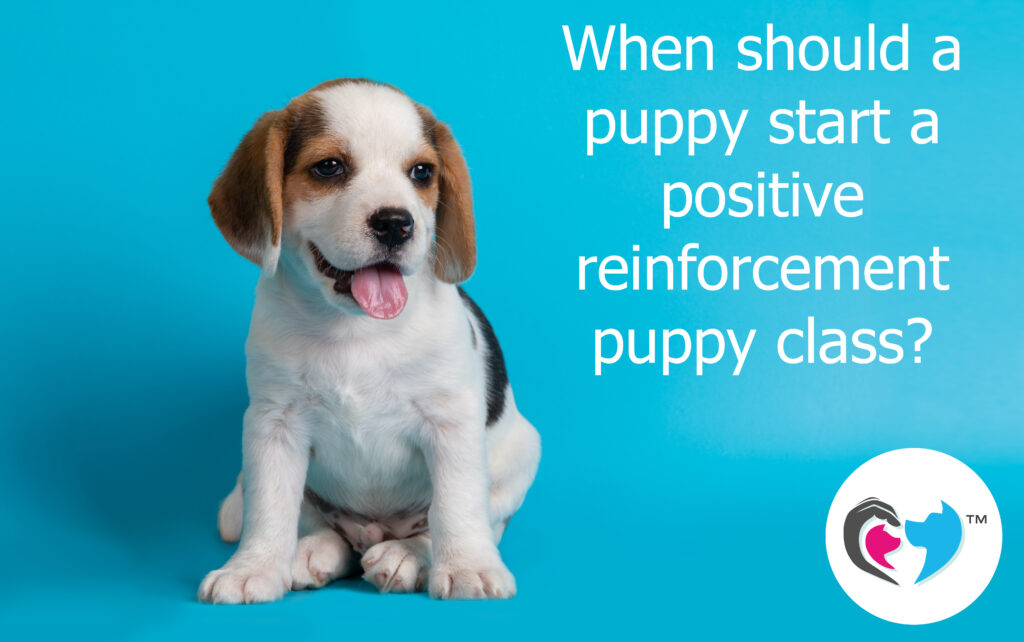Bringing a new puppy into your life is an exciting and joyous experience. As a responsible dog guardian, one of the most important steps you can take to ensure your puppy’s well-being and development is enrolling them in a positive reinforcement puppy class. These classes are specifically designed to provide early socialisation, foundational training, and positive experiences for your canine companion. However, determining the ideal time to start such a class requires careful consideration.
The Importance of Early Socialisation: Early socialisation plays a critical role in shaping a puppy’s behaviour and temperament. During the first few months of a puppy’s life, they are highly receptive to new experiences and interactions. Positive reinforcement puppy classes provide a controlled and supervised environment for your puppy to socialise with other dogs and people, helping them develop crucial social skills. Habituation through early exposure to various sights, sounds, smells, and experiences can help prevent challenges later in life.
The Ideal Age to Start: The ideal age to start a positive reinforcement puppy class is typically before the pup reaches 16 weeks of age. This age range is considered the “socialisation period” or the critical window for learning and adapting to new environments, as well as for learning what is safe and normal. Different trainers and classes may have varying age requirements, so it’s best to consult with the specific puppy class provider for their recommendations. Mixed aged classes are fine, provided ALL pups are under 16 weeks of age. Having a dog over 16 weeks of age in a class for puppies under 16 weeks can be detrimental to everyone involved, as a dog who is older than 16 weeks will behave differently to one under 16 weeks of age. Keep the developmental stages grouped together and cater for each stage’s needs. It’s also better to have a class with mixed sized (but similarly aged) pups, so they learn to interact appropriately with dogs of all sizes.
Considerations for Enrolment:
1. Vaccination Status: Ensure that your puppy – and all the other pups attending – have received their firstvaccinations before attending a class. Vaccinations protect against common diseases and minimise health risks. Consult with your veterinarian to determine the appropriate timing for vaccinations based on your puppy’s breed, health, and local disease prevalence.
2. Health Check: Schedule a veterinarian visit to ensure your puppy is in good health before participating in group activities. This step helps prevent the spread of contagious illnesses and ensures the well-being of all puppies in the class. Also make sure everyone has been dewormed.
3. Developmental Readiness: Observe your puppy’s behaviour and readiness for training. They should be confident and comfortable exploring new environments and interacting with other dogs. If your puppy is reluctant or scared, it might be beneficial to consult a professional COAPE qualified behaviourist for individualised guidance before joining a group class.
Benefits of Positive Reinforcement Training: Positive reinforcement training methods promote a strong bond between you and your puppy and foster a positive learning experience. Using rewards such as treats, praise, and play, your puppy will associate training with fun and positive outcomes, making them more eager to learn and cooperate.
Enrolling your puppy in a positive reinforcement puppy class is an excellent investment for their overall well-being and future development. Positive reinforcement training methods will help shape your puppy into a well-behaved companion will help them to know how to navigate life in a human home. It’s a critical part of their education, so seize the opportunity to give them the best start possible through positive reinforcement puppy classes.





